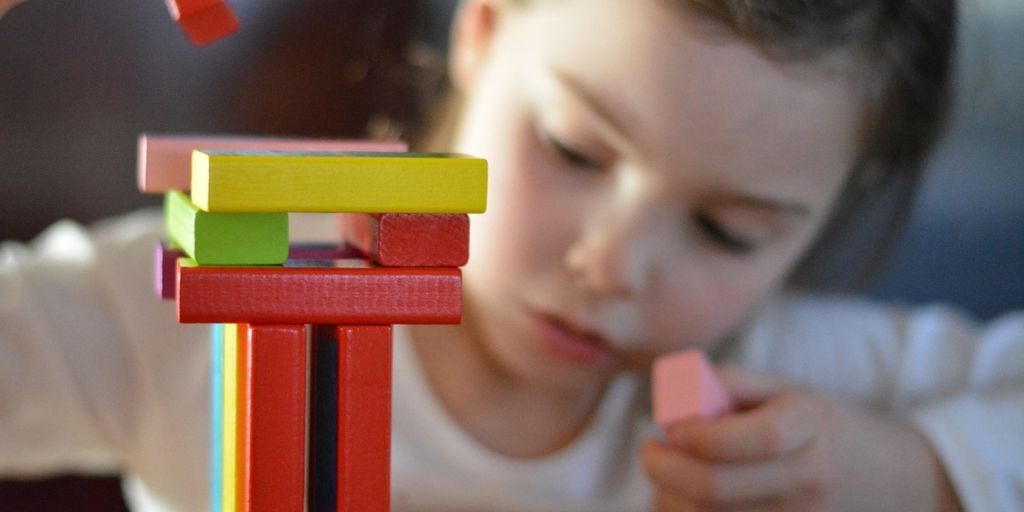
Embracing Positive Parenting is about nurturing a loving, supportive, and joyous environment that fosters the overall development of children. By adopting strategies that promote positivity and understanding, parents can significantly impact their children’s happiness and growth. This article delves into various aspects of positive parenting, offering actionable strategies to help parents raise well-rounded, content, and resilient children.
Key Takeaways
- Understanding the principles of positive parenting helps in fostering a secure and loving environment for children.
- Creating a nurturing home environment is crucial for children’s emotional and physical well-being.
- Effective communication, including active listening and empathy, enhances parent-child relationships.
- Encouraging positive behavior through consistent boundaries and positive reinforcement promotes good habits.
- Parental self-care is essential as it directly impacts the effectiveness of parenting strategies.
Understanding the Core Principles of Positive Parenting

Defining Positive Parenting
Positive parenting is rooted in dignity and respect, aiming to treat children as deserving individuals. It involves understanding the root causes of behaviors and addressing them with empathy and connection. Children deserve to be treated with dignity and respect, which forms the foundation of this approach.
Benefits for Children and Parents
Positive parenting enhances the emotional and social skills of children by fostering a secure and loving environment. It reduces conflicts and promotes a deeper understanding between parents and children, making family life more harmonious.
Long-term Impact on Child Development
This parenting style has profound long-term effects on a child’s development. It helps in raising individuals who are emotionally secure and socially competent. The consistent application of positive discipline and boundaries ensures that children grow into well-adjusted adults.
Creating a Nurturing Home Environment
Setting Up a Positive Physical Space
Creating a positive physical space at home is crucial for your child’s development and happiness. Start by decluttering and organizing the space to make it feel welcoming and calm. Choose a few carefully selected items that inspire creativity and learning, avoiding overwhelming clutter.
Encouraging Emotional Safety
Emotional safety at home helps children thrive. Foster an environment where kids feel secure to express their feelings and thoughts without fear of judgment. This can be achieved by being consistently supportive and open to discussing their emotions.
Promoting Healthy Routines
Establishing healthy routines provides children with a sense of security and helps them develop self-discipline. Regular schedules for meals, homework, and bedtime are essential. Also, incorporate routines that involve physical activity and family time to support their overall well-being.
Effective Communication Strategies

Active Listening Techniques
Active listening is a cornerstone of effective communication with children. It involves fully concentrating, understanding, responding, and then remembering what is being said. Here are a few steps to enhance your active listening skills:
- Ensure you are fully present in the conversation, avoiding distractions.
- Reflect on what your child says and clarify their points.
- Show that you understand by nodding or giving short verbal affirmations like ‘I see’ or ‘Go on’.
Expressing Empathy and Understanding
Empathy is about more than just hearing words; it’s about connecting with the emotions behind those words. To effectively communicate empathy:
- Validate your child’s feelings by acknowledging them without judgment.
- Use phrases like ‘It sounds like you feel…’ to demonstrate understanding.
- Encourage them to express themselves fully, ensuring a safe and supportive environment.
Guiding Through Conflicts
Conflict is natural in any relationship, but handling it positively can strengthen bonds. Here’s how to guide your children through conflicts:
- Start by setting a calm and neutral tone.
- Encourage all parties to express their viewpoints respectfully.
- Help them explore solutions together, emphasizing collaboration over competition.
By incorporating these strategies, you can foster a more open and respectful communication environment within your family.
Encouraging Positive Behavior

Reward Systems and Positive Reinforcement
Implementing a reward system can significantly enhance a child’s motivation to adhere to desired behaviors. By offering tangible rewards like stickers or extra playtime for positive actions, children learn the value of good behavior. This method aligns closely with the principles of positive reinforcement, which is proven to encourage better behavior over time.
Setting Clear and Consistent Boundaries
Clear and consistent boundaries are essential for children to feel secure and understand expectations. Outline acceptable behaviors and consequences for missteps, ensuring that these guidelines are consistently applied. This clarity helps children navigate their choices and understand the framework within which they can operate safely and respectfully.
Teaching Responsibility and Independence
Encouraging children to take responsibility for their actions and fostering independence are crucial steps in positive parenting. Start with simple tasks like cleaning up toys or choosing their clothes, and gradually increase responsibilities as they grow. This approach not only teaches them valuable life skills but also boosts their confidence and self-reliance.
Note: It’s important to balance freedom with guidance to help children develop a sense of responsibility while feeling supported.
Fostering Emotional Intelligence

Developing Empathy in Children
Empathy is the cornerstone of emotional intelligence. By modeling empathy and kindness, parents can teach their children to appreciate and understand the feelings of others. This not only helps in building stronger relationships but also enhances their own emotional well-being.
Managing Emotions and Stress
Children need to learn how to manage their emotions effectively. Introducing techniques like mindfulness and encouraging open discussions about feelings can help children develop emotional regulation and resilience. This is crucial for their ability to cope with stress and challenges.
Building Self-Esteem and Confidence
A child’s self-esteem is greatly influenced by their sense of being understood and valued. Regular positive reinforcement and celebrating small successes can boost their confidence. It’s important to allow children to experience both failure and success, which fosters a healthy self-image and independence.
Fostering emotional intelligence in children leads to a deeper parent-child connection and prepares them for a happier, more successful life.
Incorporating Fun and Learning

Educational Activities That Promote Happiness
Incorporating educational activities that are both fun and instructive can significantly boost a child’s happiness and development. Engage children with activities that blend learning with play, such as interactive story times, puzzles that teach problem-solving, or arts and crafts that explore creativity. These activities not only entertain but also enhance cognitive skills and emotional well-being.
Balancing Play and Structure
To foster a well-rounded development, it’s essential to strike a balance between play and structured learning. Children thrive in environments where they can explore through play yet also benefit from the discipline of structured activities. This balance helps in cultivating skills like time management and self-discipline, which are crucial for lifelong success.
Encouraging Curiosity and Creativity
Fostering a child’s curiosity and creativity is vital for their emotional and intellectual growth. Encourage questions and allow them to lead in their learning adventures. Activities that stimulate curiosity can make learning more enjoyable and effective. By nurturing these qualities, you prepare children to face future challenges with confidence and ingenuity.
Note: It’s important to adapt activities to fit the age and interests of each child to keep them engaged and motivated.
Parental Self-Care and Its Impact on Parenting

Importance of Parental Mental Health
Taking care of your mental health is crucial as a parent. It’s not just about avoiding burnout; it’s about being the best you can be for your children. Chronic exhaustion and overwhelming stress can significantly impair your ability to parent effectively.
Strategies for Stress Management
To manage stress effectively, consider these steps:
- Identify stress triggers and address them proactively.
- Set aside time for self-care activities that rejuvenate your spirit and body.
- Seek support from family, friends, or professionals when needed.
Maintaining a Positive Outlook
A positive outlook can transform the way you handle parenting challenges. Remember, optimism is contagious; your positive attitude can influence your children’s perspectives and behaviors. Embrace a balanced approach to parenting, ensuring you prioritize your well-being alongside your children’s needs.
Community and Social Support

Leveraging Community Resources
Community resources play a pivotal role in enhancing the parenting experience and child development. By accessing local libraries, parks, and educational workshops, parents can provide their children with enriching experiences that foster growth and learning. Utilizing these resources effectively can strengthen the parent-child relationship and support children’s social skills.
Building a Supportive Network
A strong support network is essential for both parents and children. This network can include family, friends, and community groups that provide emotional and practical support. Engaging with a supportive network helps to reduce the stress associated with parenting and enhances the overall well-being of the family.
Engaging in Social Activities with Children
Participating in social activities with children not only strengthens bonds but also promotes their social and emotional development. Activities such as sports, cultural events, and community service can be powerful tools for teaching children about teamwork, empathy, and community involvement. Encouraging children to be active participants in these activities can lead to a more balanced and happy life.
Conclusion
In conclusion, embracing positive parenting is not just a strategy but a journey filled with love, patience, and understanding. By fostering a positive environment, encouraging open communication, and instilling an optimistic mindset, parents can significantly enhance their children’s happiness and well-being. Remember, the goal is not to perfect parenting but to make the parenting journey as joyful and fulfilling as possible for both you and your children. So, take these strategies to heart, apply them with kindness and consistency, and watch as your children grow into happy, confident individuals ready to face the world.
Frequently Asked Questions
What is positive parenting?
Positive parenting is a parenting style that emphasizes nurturing, support, and positive reinforcement while minimizing punishment. It focuses on building strong, healthy relationships with children through clear communication, empathetic listening, and consistent guidance.
How does positive parenting benefit children?
Positive parenting helps to raise children who feel secure, loved, and valued. It fosters their emotional intelligence, boosts their self-esteem, and enhances their social skills. It also contributes to better mental health and fewer behavioral problems.
What are some effective strategies for creating a nurturing home environment?
Creating a nurturing home environment involves setting up a positive physical space, ensuring emotional safety, and promoting healthy routines. Engage children in activities that make them happy, provide a secure and supportive atmosphere, and encourage open communication.
How can parents effectively communicate with their children?
Effective communication with children involves active listening, expressing empathy, and guiding them through conflicts without judgment. Parents should aim to understand their children’s perspectives and feelings, and respond with kindness and support.
What role does parental self-care play in positive parenting?
Parental self-care is crucial in positive parenting as it directly impacts the overall well-being and mood of the parent, which in turn affects their ability to parent effectively. Strategies for self-care include maintaining mental health, managing stress, and fostering a positive outlook.
How can parents foster emotional intelligence in their children?
Parents can foster emotional intelligence by teaching children to manage their emotions, developing their empathy, and building their self-esteem. This involves validating their feelings, providing guidance on handling emotions constructively, and encouraging them to express themselves openly.






